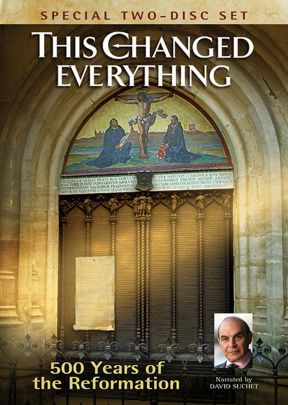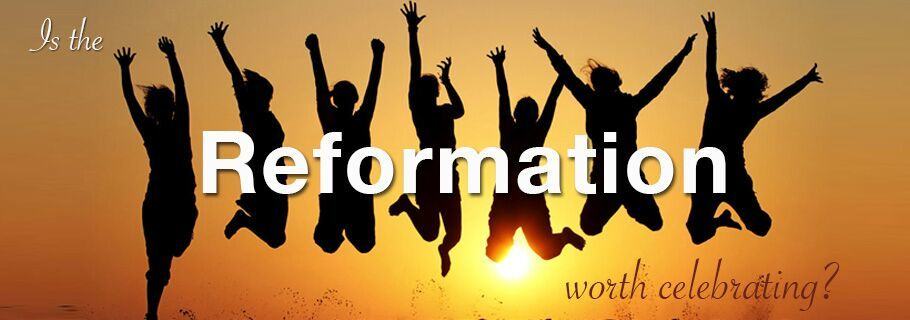This sponsored post was provided by Matthew Oser on behalf of Christian History Magazine.
Did you ever notice that our society celebrates everything? In September alone we celebrated “Random Acts of Poetry Day” (September 6), “Video Games Day” (Sep 12), “White Chocolate Day” (September 22), “Punctuation Day” (Sep 24), and every parent’s favorite—“Quiet Day” (Sep 12). (Somehow my kids missed that one.)
 Our culture tends to glorify and honor the every day minutiae of life—and of course, who doesn’t like a good party, even if we are commemorating “Corn Hash Day” (Sept 27)? However, the approaching of the 500th Anniversary of Martin Luther’s act of nailing his 95 Theses to the door of the Wittenberg Castle church on October 31, 2017 will pass unnoticed by many Protestant Christians.
Our culture tends to glorify and honor the every day minutiae of life—and of course, who doesn’t like a good party, even if we are commemorating “Corn Hash Day” (Sept 27)? However, the approaching of the 500th Anniversary of Martin Luther’s act of nailing his 95 Theses to the door of the Wittenberg Castle church on October 31, 2017 will pass unnoticed by many Protestant Christians.
Why isn’t the Reformation celebrated and remembered by more Christians? For one thing, Protestantism struggles from a debilitating lack of its own history. Recently, while I explained Martin Luther’s 95 theses in a Bible study, one of my church members asked, “Was this before or after his ‘I have a dream’ speech?”
Several individuals have also brazenly told me that church history “is full of dead people who did it wrong. Why should I care what they did?”
My heart palpitated as I tried to listen before speaking! In my experience, the average person in our pews knows little about the Reformation and does not see the worth in learning more. But with this willful amnesia, they miss how the Reformation changed everything—from churches, culture, economics, political powers, and even marriage—and how it continues to shape us today.
Another reason other Protestants I know, especially the younger generations, do not mark or celebrate the Reformation is due to its conflicted and divided legacy. They raise a valid point. Denominational fissures rooted in the Reformation linger on as we face the estimated existence of over 35,000 denominations; and that number continues to grow. Further, many accuse Christianity of causing the death of more people in its religious wars than in geo-political wars, and regrettably, those religious wars have their roots in the Reformation. For them, we too often view the Reformation’s legacy as one of great rebirth of the church and freedom from the Papal stronghold without openly and honestly addressing its legacy of deep pain from all perspectives.
These objections, however, were the fuel that brought us to create, write, direct, and produce The Reformation: This Changed Everything. We wanted to give pastors and other Christian leaders a tool that could help their people better understand the importance of the Reformation while also giving them reason to celebrate it as a great renewal of the Church. We also hoped to spur the church to begin a conversation about the legacy of division that mars the Reformation for so many people.
It is my belief that the Reformation is worth honoring, remembering, and even celebrating. If our society can celebrate “World Tripe Day” (October 24), we as Protestants can set aside time on October 31, 2017 and remember the 500th anniversary of the event that “lit the powder keg of the Reformation”.
Matthew Oser
Christian History Magazine
Christian History Magazine is a donor-supported quarterly print publication. Subscriptions to the magazine are free at ChristianHistoryMagazine.org.










